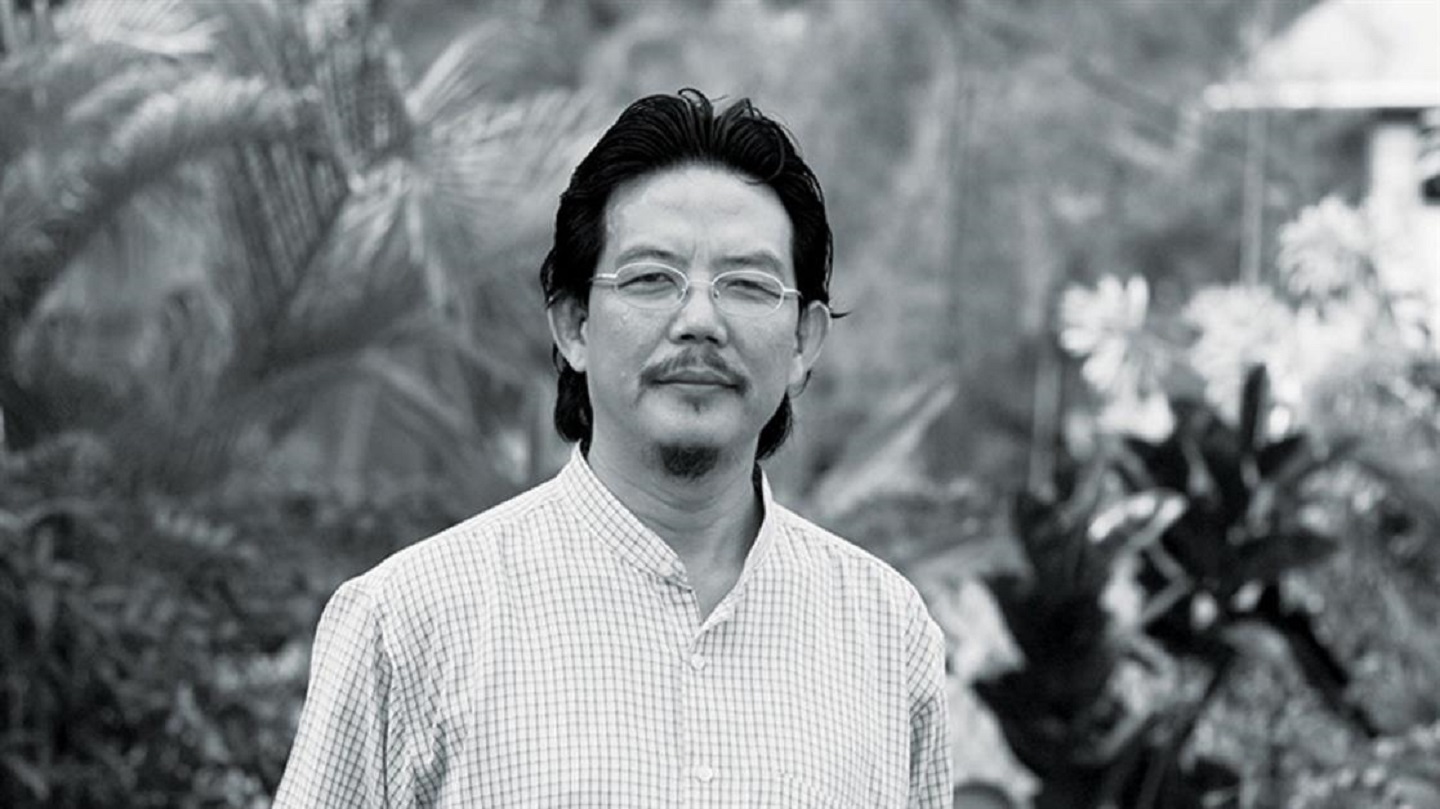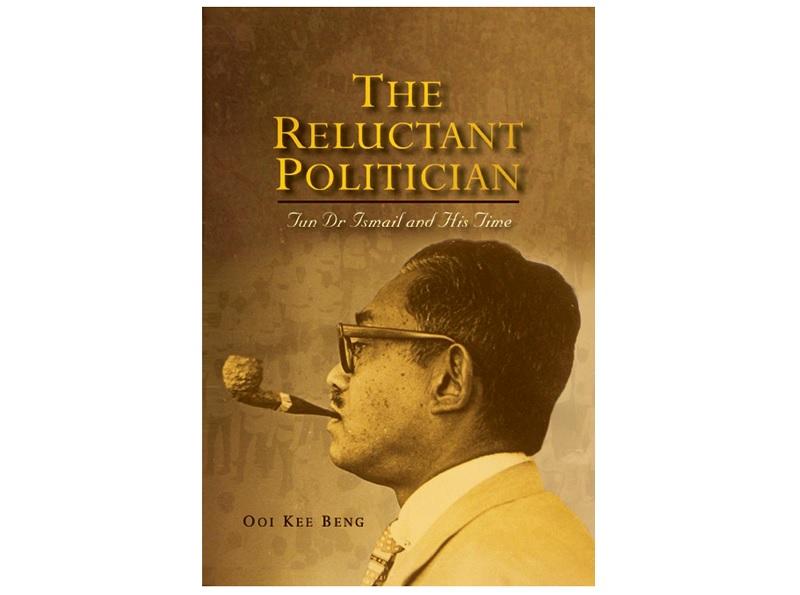
Author Dr Ooi Kee Beng (Photo: Penang Monthly)
The Reluctant Politician is the biography of Tun Dr Ismail Abdul Rahman, who died at the age of 57 of a massive heart attack on Aug 2, 1973, while he was acting prime minister. This remarkable patriot, who never intended to enter the political arena, served under two of Malaysia’s greatest prime ministers who governed during the most exciting of times in our history. Written by Dr Ooi Kee Beng and published by ISEAS, Singapore, the biography is based on Ismail’s private papers that encompassed parts of an unfinished autobiography, correspondence and reports he wrote while serving as ambassador to the US. It also includes interviews with various people who knew him well — his family, close friends and contemporaries such as Tun Musa Hitam, Tengku Razaleigh Hamzah, Lee Kuan Yew, Tun Muhammad Ghazalie Shafie and even Tunku Abdul Rahman.
Revisiting this book after it was published in 2007 to great success provided me with fresh perspectives about the significance of Johor to Malaysian politics, the evolution of our political system and the events and problems that influenced our country’s development. The Reluctant Politician is also about the relationship between Tun Abdul Razak and Ismail, two great first generation leaders of our nation who tirelessly served the country despite their various illnesses because of their inordinate sense of duty. Tragically, they both died too young.
An inspiring read, the book captivates the reader with the intensity and drama behind the creation of a new country. The resistance against the planned Malayan Union proposed by the British, the history behind the formation of Umno, the nation’s struggle against the communist movement, the early issues of Umno-MCA relations and the collective effort by the Alliance (the predecessor to Barisan Nasional) to gain the country’s freedom from the British. Ooi succeeds in expressing Ismail’s feelings and voice during the various phases of his life and ministerial postings — the fearless Malay loyalist, the dedicated and strong-minded party member, a strict father, loving husband and, ultimately, loyal serving colleague.
Born and raised to serve
Ismail was born on Nov 4, 1915, into a renowned Johor political family whose roots went back to the “Bendahara line” that served the Melaka sultanate. His father, Datuk Abdul Rahman Yassin, was an influential Johorean who served the state in various positions. He believed that great financial sacrifices were worth making for his children’s education. Ismail was educated at the English College in Johor Baru followed by a short period in Singapore and then sent off to the University of Melbourne, Australia, to complete his medical studies. His biography details how the challenging experience of studying abroad shaped his adulthood — from sailing off to an unknown land with limited money to surviving the loneliness of living away from home with barely any communication as the result of World War II.
Upon returning home in 1946, 31-year-old Ismail — the first Malay to graduate from the University of Melbourne — joined the influential Malay Graduates’ Association, a political group that advocated independence. Together with his brother Suleiman, they convinced Tunku Abdul Rahman to take the lead in fighting for independence and run for Umno president after Datuk Onn Jaafar resigned from the party he had formed. Tunku later stated in his books that it was their support that convinced him to take on the challenge. Ismail’s days of practising as a doctor in his private clinic were short-lived, much to the chagrin of his father. Malaya’s impending independence required the dedication of the talented returning graduates to strategise the roadmap for the country’s independence. Both Suleiman and Ismail could not resist the call to serve with the escalation of Malay nationalism throughout the country.
Just before independence, Ismail was chosen by Tunku to be the first ambassador to Washington DC and the first permanent representative to the United Nations for the newly formed country. He was tasked with positioning the young nation to the world. He set up the two missions from scratch and threw his heart and soul into every aspect of the job. Additionally, he sought developmental funding for the nation and put forth its position on China and its fight against communism. Ismail feared China’s “new form of imperialism”, with its encroachment on Southeast Asia. He learnt a lot about the economics of nation-building and the importance of taking a path of moderation, which earned the respect of the UN for the country.

The man he was
Much of the book covers Ismail’s early political positions — first as Johor state councillor and, when he joined Umno, the roles he took on as party representative in the Federal Legislative Council and thereafter, ministerial responsibilities up to his retirement in 1967. It also entails the events that led to the May 13 riots, which eventually saw the return of Ismail to support the then deputy prime minister Tun Abdul Razak in restoring peace and stability to the country. Musa Hitam, who witnessed his telecast, recalls the sense of relief he felt when Ismail spoke to the nation, asking for calm and order in the midst of the crisis. Tun Salleh Abbas also credits him with being a pragmatic politician who fought for what he thought was the best solution.
The more interesting accounts written by Ooi detail Ismail’s most noteworthy contributions during the period when he took up the portfolios of External Affairs, followed by Internal Security and Home Affairs. Together with Razak, he played an instrumental role in the separation of Singapore from Malaysia (due to ideological differences), negotiating behind the scenes with his Singaporean counterparts who included Goh Keng Swee, the then minister of finance, and Eddie Barker, the minister of law. Lee Kuan Yew would later describe Ismail as exceptional. “He was the one I trusted absolutely. He was not a time server and did not suffer any overpowering personal ambition.”
Ismail’s strong opposition to communism also saw him embark on a crusade to neutralise Southeast Asia by reaching an agreement with Indonesia to end a three-year confrontation. When he retired in 1967, the Straits Times said, “It is difficult to think of a ministry he has not headed, a political role he has not played and a central event he has not influenced”.
His intolerance for incompetence was well known and although a Malay loyalist, he believed in racial equality. His acceptance of races can be traced back to his childhood — his Chinese adopted sisters and the friends he grew up with, including the Kuok brothers, Leslie Cheah and the Puthucheary brothers, and his multicultural education. He served as the legislative representative for Johor Timor until his death and will always be remembered for being a staunch supporter of both Tunku and Razak who returned to serve the nation during the Emergency rule despite being ill. Soon after, he became the deputy prime minister.
Ismail was a man born to serve, not just in his chosen profession but his country and its people. The Reluctant Politician is an excellent read about the first group of leaders who participated in the formation of the country. It is a must-read for the generation of Malaysians who were born after his demise.
This article first appeared in The Edge Malaysia on May 28, 2018.


